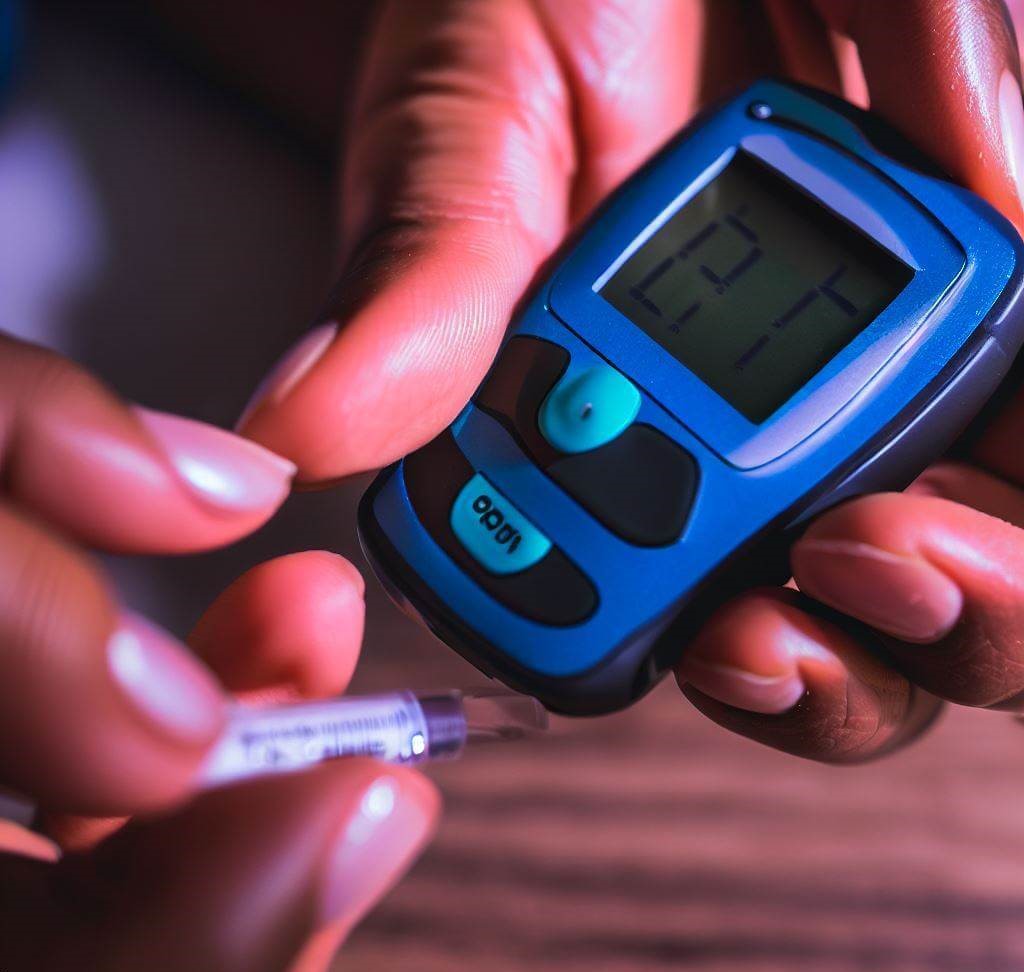Introduction
The intricate relationship between diabetes and heart health is more than a coincidental occurrence. With rising statistics in both heart disease and diabetes cases, understanding their interconnection has become paramount. It’s no secret that those with diabetes are at a higher risk of developing heart complications. This risk factor extends to all forms of heart disease and includes conditions such as coronary artery disease, heart failure, and even stroke. However, the reason why this relationship exists isn’t as widely understood. This article aims to elucidate the complex interplay between diabetes and heart health and highlight why managing diabetes effectively is synonymous with maintaining a healthy heart.
Understanding Diabetes
Diabetes, a chronic metabolic disease, has been at the forefront of global health issues for years. As per the International Diabetes Federation, as of 2021, an estimated 537 million adults were living with diabetes worldwide. Diabetes is characterized by high levels of sugar or glucose in the blood. This could be due to the pancreas not producing enough insulin (as in type 1 diabetes) or the body not responding effectively to insulin (as in type 2 diabetes). Insulin is a hormone that plays a vital role in regulating blood sugar levels.
When the body can’t effectively use insulin, glucose accumulates in the bloodstream. This condition, known as hyperglycemia, can lead to severe damage to various body systems over time. It can affect the eyes (diabetic retinopathy), kidneys (diabetic nephropathy), nerves (diabetic neuropathy), and significantly, the heart and blood vessels (cardiovascular diseases).
What Is Heart Health?
When we talk about heart health, we’re referring to the state of our cardiovascular system. This includes the heart, blood vessels, and the blood that circulates through them. A healthy heart effectively pumps blood through the vessels, supplying oxygen and nutrients to every cell in the body.
Maintaining heart health is critical as it significantly influences overall health and well-being. Key components of heart health include maintaining a healthy blood pressure level, keeping cholesterol and triglyceride levels under control, reducing the risk of plaque build-up in the arteries (atherosclerosis), and maintaining a regular, healthy heartbeat.
Heart health can be influenced by numerous factors. Some, like age and genetics, can’t be controlled. Others, like diet, physical activity, stress levels, and the presence of other health conditions like diabetes, can be managed. In this context, understanding the connection between diabetes and heart health becomes crucial, as effectively managing diabetes can be a significant step towards maintaining a healthy heart.

How Diabetes Affects Heart Health
The link between diabetes and heart health is rooted in the physiological changes that occur due to persistently high blood glucose levels. Over time, hyperglycemia can cause damage to blood vessels and nerves that control the heart.
Diabetes is associated with a condition known as atherosclerosis, which is a build-up of fatty plaques in the arteries. These plaques can harden and narrow the arteries, limiting the flow of oxygen-rich blood to vital organs. When arteries that supply the heart become affected, it can lead to coronary artery disease, the most common type of heart disease.
Moreover, the longer you have diabetes, the higher the chances of developing heart disease. In addition to atherosclerosis, diabetes can also contribute to heart failure. A study in the Journal of the American College of Cardiology has shown that diabetes independently increases the risk of heart failure, and this risk is significantly higher in women than men.
Symptoms of Heart Disease in Diabetics
The signs and symptoms of heart disease in people with diabetes can sometimes be less noticeable. This is because diabetes can also cause neuropathy or nerve damage, which can dull the typical chest pain (angina) that people experience when they have heart disease.
Nevertheless, there are symptoms that could indicate heart disease. They may include:
- Shortness of breath: This can occur with exertion or even at rest if heart failure is present.
- Fatigue: This may occur because the heart cannot pump enough blood to meet the body’s needs.
- Chest discomfort: This can feel like pressure or a squeezing sensation in the chest, often triggered by physical activity or stress.
- Rapid or irregular heartbeat.
If you have diabetes and experience any of these symptoms, seek medical attention immediately.
Preventing Heart Damage: Role of Blood Sugar Control
One of the best ways to prevent or manage heart disease when you have diabetes is to control your blood sugar levels. High blood sugar levels can cause various problems, including damage to your blood vessels and the nerves that control your heart and blood vessels. Over time, this can lead to heart disease.
Research shows that good blood sugar control can decrease the risk of heart disease. A study published in the New England Journal of Medicine showed that intensive glucose control in type 2 diabetes patients reduced the risk of heart disease by about 50%.
In addition to blood glucose control, it is crucial to manage other risk factors such as high blood pressure, high cholesterol, and smoking. Lifestyle modifications, including eating a balanced diet, regular physical activity, and maintaining a healthy weight, also play an essential role in preventing heart disease in people with diabetes.
Remember, managing diabetes is not just about controlling blood sugar – it’s about comprehensive cardiovascular risk reduction. Regular check-ups with your healthcare provider can ensure you’re on the right track towards maintaining both your heart health and diabetes under control.

Lifestyle Changes for Better Heart Health
To protect your heart health when you have diabetes, there are several important lifestyle changes you can make:
- Maintain a healthy diet: A balanced diet that is high in fruits, vegetables, lean proteins, and whole grains can help keep both your blood sugar and your cholesterol levels in check. Limit intake of saturated fats, trans fats, and high-cholesterol foods.
- Physical activity: Regular exercise is a cornerstone of diabetes management and heart health. Aim for at least 150 minutes of moderate-intensity exercise each week, such as brisk walking, cycling, or swimming.
- Weight management: If you’re overweight, losing even a small amount of weight can significantly impact your heart health and blood sugar control.
- Avoid smoking and limit alcohol: Smoking raises the risk of heart disease, especially in people with diabetes. Alcohol can interfere with blood sugar levels and should be consumed in moderation, if at all.
- Manage stress: Chronic stress can exacerbate blood sugar levels and contribute to inflammation, a key player in heart disease. Techniques like meditation, yoga, or simply taking time out for hobbies can help manage stress levels.
Managing Heart Disease: Treatment Options
In addition to lifestyle changes, medical treatment is often necessary for people with diabetes who have heart disease. Treatment plans vary depending on the specific type of heart disease, the severity of the condition, and individual patient factors.
- Medications: Blood pressure medications, cholesterol drugs (statins), and blood-thinning medications can all help manage heart disease. Certain diabetes drugs, such as GLP-1 receptor agonists and SGLT2 inhibitors, have also shown to reduce cardiovascular risk.
- Procedures and surgery: In cases where the arteries are blocked, procedures such as angioplasty, stent placement, or bypass surgery may be necessary.
- Cardiac rehabilitation: This is a program that includes exercise training, heart disease education, and counseling to reduce stress and promote healthy lifestyle habits.
Regular follow-ups with your healthcare provider are critical in managing heart disease effectively.
Living with Diabetes and Heart Disease: Tips and Strategies
Living with diabetes and heart disease can be challenging, but with the right strategies, you can manage both conditions and lead a healthy life.
- Be proactive about your health: Regular medical check-ups, consistent monitoring of blood sugar levels, and taking prescribed medications as directed are all crucial aspects of managing your conditions.
- Education: Knowledge is power. The more you understand about diabetes and heart disease, the better equipped you’ll be to make decisions about your health.
- Build a support network: Managing multiple chronic conditions can be stressful. Connecting with supportive friends, family, or a community of others with similar experiences can provide emotional and practical support.
- Stay positive and resilient: Mental health is just as important as physical health. Practice self-care, seek mental health support if you need it, and remember to celebrate small victories along your health journey.
Remember, managing diabetes and heart disease is a marathon, not a sprint. The key is consistent, lifelong habits that promote overall health and well-being.
The Psychological Impact of Diabetes on Heart Health
Living with diabetes isn’t just a physical challenge—it’s a mental and emotional one too. Managing your blood sugar, navigating dietary restrictions, remembering to take medications—these daily realities of life with diabetes can lead to stress and anxiety.
It’s important to address these psychological factors because they’re not just problematic on their own—they can also have a significant impact on your heart health. Chronic stress is known to be a risk factor for heart disease. When you’re under stress, your body produces hormones that increase your heart rate and blood pressure. Over time, this “wear and tear” can damage your heart and blood vessels, leading to heart disease.
But that’s not all. The stress and emotional turmoil can also interfere with your ability to manage your diabetes effectively. You might find yourself forgetting to take your medication or resorting to unhealthy eating habits as a form of comfort, which in turn can lead to poorer blood sugar control.
That’s why mental health care is a crucial part of diabetes management. Don’t hesitate to seek professional help if you’re feeling overwhelmed. Therapists and counselors trained in chronic disease management can provide you with coping strategies and stress management techniques. Mindfulness practices like meditation and yoga can also be beneficial.

The Role of Medications in Managing Diabetes and Heart Health
When lifestyle changes aren’t enough, medications become an essential part of managing diabetes and heart health. There are several types of medications that can help control your blood sugar levels, lower your blood pressure, reduce your cholesterol levels, and protect your heart in various ways.
Medications used for diabetes include insulin, metformin, DPP-4 inhibitors, and GLP-1 receptor agonists, among others. Heart medications can include statins, beta-blockers, ACE inhibitors, and anticoagulants.
Each of these medications works in a different way and has its own set of potential side effects, so it’s essential to work closely with your healthcare team to find the right medication regimen for you. Always take your medications as directed and never hesitate to ask your doctor if you have any questions or concerns.
Remember, medication is a tool, not a cure. It works best when combined with healthy lifestyle habits. Continue to focus on your diet, exercise, and other lifestyle factors, even as you take your medication.
Conclusion
The link between diabetes and heart health is undeniable. While diabetes can increase your risk of developing heart disease, it’s important to remember that this isn’t a guaranteed outcome. With a proactive approach, good self-management, and a strong partnership with your healthcare team, you can take steps to protect your heart health and manage your diabetes effectively.
Living with diabetes doesn’t just mean managing your blood sugar—it means taking care of your overall health, heart included. By understanding your risks and making the necessary lifestyle changes, you can lead a healthy, fulfilling life even with diabetes.
Never underestimate the power of small, consistent changes in your daily routines. Even minor adjustments in your diet, exercise habits, or medication regimen can have profound effects on your health over time. It’s all about finding what works for you and your unique needs.
Remember, you’re not alone in this journey. There are resources and support available to you, from your healthcare team to support groups. Be proactive, stay informed, and never hesitate to seek help when you need it.
Frequently Asked Questions
1. Why are people with diabetes more at risk of heart disease? Diabetes can cause high blood sugar levels, which over time can damage blood vessels and nerves that control the heart. Additionally, people with diabetes often have other conditions like high blood pressure and high cholesterol that increase the risk of heart disease.
2. What are the symptoms of heart disease in diabetics? Symptoms can include chest pain, shortness of breath, fatigue, and irregular heartbeat. However, people with diabetes may have less typical symptoms, or even no symptoms at all, making regular screening crucial.
3. How can I reduce my risk of heart disease if I have diabetes? Key steps include controlling your blood sugar, blood pressure, and cholesterol levels; maintaining a healthy weight; eating a heart-healthy diet; getting regular exercise; not smoking; and limiting alcohol.
4. Can heart disease in diabetics be reversed? While heart disease can’t be reversed, its progression can be slowed significantly through lifestyle changes and medication. In some cases, procedures and surgeries can help improve heart function.
5. What should I do if I have diabetes and I’m experiencing heart disease symptoms? Seek medical attention immediately. Early detection and treatment can significantly improve the outcome. Regular check-ups are also important for early detection, even if no symptoms are present.





